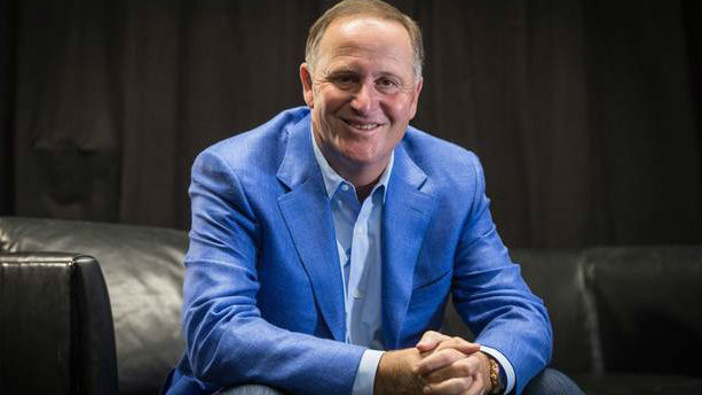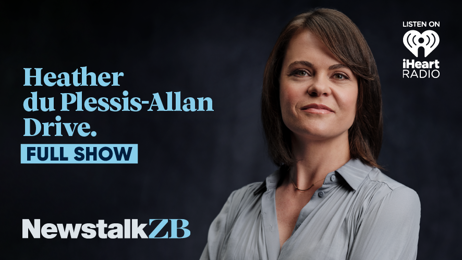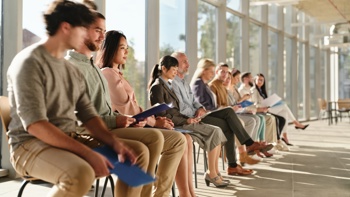Follow
the podcast on


Former Prime Minister Sir John Key wants to encourage rich Americans to buy New Zealand property to help reduce the impact of a looming "financial crisis".
He told Heather du Plessis-Allan that border restrictions should be loosened so that universities and companies could bring in foreign students and skilled workers and pay for their own quarantine.
And he said foreigners buying New Zealand property would provide work for Kiwis whose jobs are disappearing.
"Let's focus on what we can do. We've got this crazy foreign buyer ban," he said.
"Why don't we let in rich Americans who want to build a house in New Zealand? Who cares? They're in Mangawhai or somewhere, they are going to create thousands of jobs.
"Why do we care if someone who lives in New York wants to spend $10 million building a house in Auckland, using NZ craftsmen and NZ tradespeople?"
Golfing and tourism resorts built by two American billionaires, including the Tara Iti golf course near Mangawhai, received almost $1 million in wage subsidies between them during the Covid-19 lockdown.
Key was speaking after telling a conference on Auckland and Covid-19 that Kiwis should not be complacent about better-than-expected business conditions because "we have a financial crisis coming".
Key said high property and share prices and apparently falling unemployment were giving New Zealanders "a false sense of what's happening".
"We've got 410,000 people on the wage subsidy. For some that will come to an end on September 1," he said.
"Secondly, it's not just New Zealand. Look at those numbers out of the US last week, there's an enormous contraction in the economy. You've got to believe Australia is really hurting now with Victoria going into a hard lockdown.
"We know that the economic contraction is going to happen for New Zealand. We know that tourism, for example, is 5 per cent [of the economy] just on its own, and to take those international tourists out, that's pretty rough.
"A lot of those things are beyond our control, but there are things that we can do faster, and that includes letting foreign students in and letting a bunch of other people come in that companies would happily pay for because they would create jobs."
He said no one wanted to lose the sense of normality that now exists in daily life, in contrast to lockdowns and social distancing overseas.
But he did not see any justification for keeping foreigners out while letting New Zealanders come home from Covid hotspots on condition that they stayed in quarantine for two weeks.
"What is so magical about that group, when we have companies who want to bring in employees from overseas who will be happy to pay for quarantine and who will happily make sure that it's done to exactly the same standard as the New Zealanders that are returning?" he asked.
He said there was "huge" accommodation available that could be used for quarantining.
"You could use stuff that is Government-owned, like Whenuapai [air force base]. I mean, there is no particular reason why we can't scale it up - just do more of it!"
Key said the reported drop in unemployment could only be true if the thousands of job losses reported in companies such as Air NZ and Fletcher Building were being offset by new jobs being created.
"And that's not happening," he said.
"For example, we have just built a new house. We had tremendous builders. Most of the tradies live in West Auckland and they are saying to me, things are really starting to slow down and starting to hurt."
Key, who now chairs the ANZ Bank, earlier told the conference that previous major economic downturns had seen contractions in GDP of around 3 per cent, and the collapse in international tourism alone - which accounted for 5 per cent of the economy - would exceed this.
"There is a lot of stress in the system ... We are in the early part of what is going to be a very significant contraction in the New Zealand and global economy," he said.
He said the Government should look at relaxing border restrictions to allow international students back into the country.
"We clearly don't want community transmission, but in the same way we welcome New Zealanders who are returning from overseas, appropriately putting them in quarantine for 14 days and testing them - certainly the universities have the capacity to do that," Key told reporters following his speech.
"I think we should allow them to bring foreign students in, I think they should be responsible for that quarantining."
Key said central government and the business community needed to be able to rapidly change course as information becomes available, even if such moves were disconcerting.
"There is no elegant way of dismount a galloping horse."
A report to the conference by Auckland Council's economic development arm Ateed said 50,000 young Aucklanders could lose their jobs in the next two years due to border closures and the global fallout from Covid-19.
Just over 60 per cent of New Zealand's 116,000 international students in 2017 were in Auckland, providing an economic benefit estimated at $2.8 billion out of $5 billion nationally.
Take your Radio, Podcasts and Music with you









